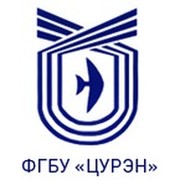Russian Federation
UDC 37
CSCSTI 14.35
Russian Classification of Professions by Education 44.03.04
Russian Library and Bibliographic Classification 745
Digitalization is one of the key challenges for modern society. Given the inevitability of "digitalization" as a global phenomenon, there is no doubt that transformation processes should take place taking into account the needs of the development of the digital economy, innovative and creative entrepreneurship, scientific opportunities, new needs and challenges both for each individual country and for the world in the whole. Currently, the use of "digital" technologies in industry is one of the most important and sustainable trends in world development. The active introduction and dissemination of digital technologies (artificial intelligence, machine learning algorithms, "cloud" computing, etc.) leads to a large-scale transformation of requirements for specialists, changes the content of work and the demand for competencies, the key role in the formation of which belongs to education. In this context, the study of the peculiarities of the impact of digitalization of the economy on the transformation of personnel training in the fishing industry acquires particular relevance and significance. Special attention in the article is paid to key competencies and digital literacy, which should become an integral attribute of personnel qualifications. The need for the formation of "hard" and "soft" skills is also indicated. Based on the results of the study, recommendations were formulated for increasing digital literacy and proper training for the fishing industry at the level of the education system as a whole and directly by the business entities themselves.
digitalization, training, personnel, fishing industry, skills, qualifications, competence, digital platform, economy, competition
1. Rayanova G.F. Cifrovaya ekonomika kak drayver mirovoy ekonomiki // Ekonomika i predprinimatel'stvo. - 2020. - № 6 (119). - S. 57-59.
2. Digital economy and society. Luxembourg: Publications Office of the EU, 2020. - 298 r.
3. Grines, Cindy L. SCAI digital education bridging the gap (October 31, 2020) // Catheterization and cardiovascular interventions. - 2021. - Volume 97 - Number 1. - Pp 1-12.
4. Matkovskaya Ya.S. Cifrovaya ekonomika kak ekonomika vozmozhnostey: s kakimi rynkami i kak marketologam predstoit rabotat' v posleduyuschee desyatiletie // Marketing i marketingovye issledovaniya. - 2020. - № 2. - S. 82-90.
5. Cifrovoe agentstvo v vysshem obrazovanii: transformaciya prepodavaniya i obucheniya // Toril Agaard, Andreas Lund. Rutledzh, 2019. - 124 s.
6. Analiz rynka dopolnitel'nogo professional'nogo obrazovaniya v Rossii v 2016-2020 gg, ocenka vliyaniya koronavirusa i prognoz na 2021-2025 gg. URL: https://marketing.rbc.ru/research/27268/
7. Education Policy, Digital Disruption and the Future of Work: Framing Young People's Futures in the Present / Shane B. Duggan. Cham: Palgrave Pivot, 2019. - 152 r.
8. Yuschik E.V. Struktura komponentov kompetenciy discipliny «Informatika» bakalavrov napravleniya «Vodnye bioresursy i Akvakul'tura» (FGOS VO 3++) v usloviyah cifrovizacii obschestva. Mezhdunarodnyy Nauchnyy Zhurnal Nauka Bez Granic. - 2020. - № 10 (50). - S. 10-16











